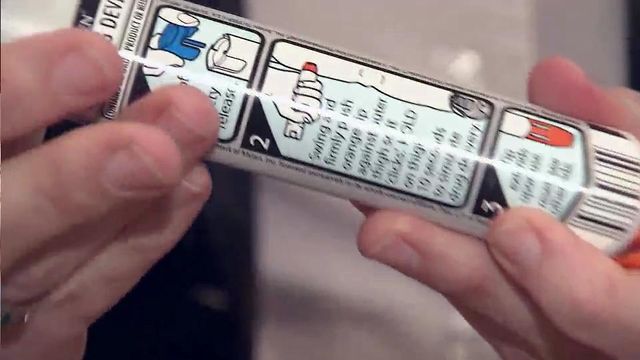NC schools stocked with EpiPens this year
A new state law requires schools to be equipped with EpiPens for children who have severe food allergies. Injected into the thigh, the pen delivers a dose into the blood stream to stop the body's allergic response.
Posted — UpdatedCamden Hughes was on a road trip with his parents about two years ago when he had his first allergic reaction to candy with nuts.
“I looked back and said, ‘Are you sick Camden?’” his father, Duncan Hughes, recalled. Camden gestured to his neck and said he felt his throat closing.
A plastic surgeon, his father knew it could be anaphylactic shock. Duncan Hughes stopped at a pharmacy and gave Camden a dose of Benadryl to keep the allergic reaction from getting worse.
The next time Camden has an allergic reaction, it could be life-threatening. So, he's never far away from his self-injectible epinephrine device – or EpiPen. Injected into the thigh, the pen delivers a dose into the blood stream to stop the body's allergic response.
“We carry his EpiPen everywhere we go - in his backpack. All his teachers know about it,” Duncan Hughes said.
A new state law requires schools to be equipped with EpiPens by Nov. 1. The pens cost about $100 each for the first year, but the manufacturer is donating two devices per school.
Most schools have already trained staff in how to use the device.
“Studies have shown that up to 20 to 25 percent of reactions that occur in school occur in patients who were not previously known to be allergic,” said Dr. Brian Vickery, a pediatric allergist with UNC Hospitals.
He said simply avoiding known food allergens isn't enough.
“It results in accidental reactions, even among the most prepared and vigilant families,” Vickery said.
Camden Hughes, 6, is starting first grade this week with his own EpiPen with him. But if it can't be found, schools now have a back-up plan.
“I think it's great. I think it's a no-brainer,” Duncan Hughes said.
• Credits
Copyright 2024 by Capitol Broadcasting Company. All rights reserved. This material may not be published, broadcast, rewritten or redistributed.





